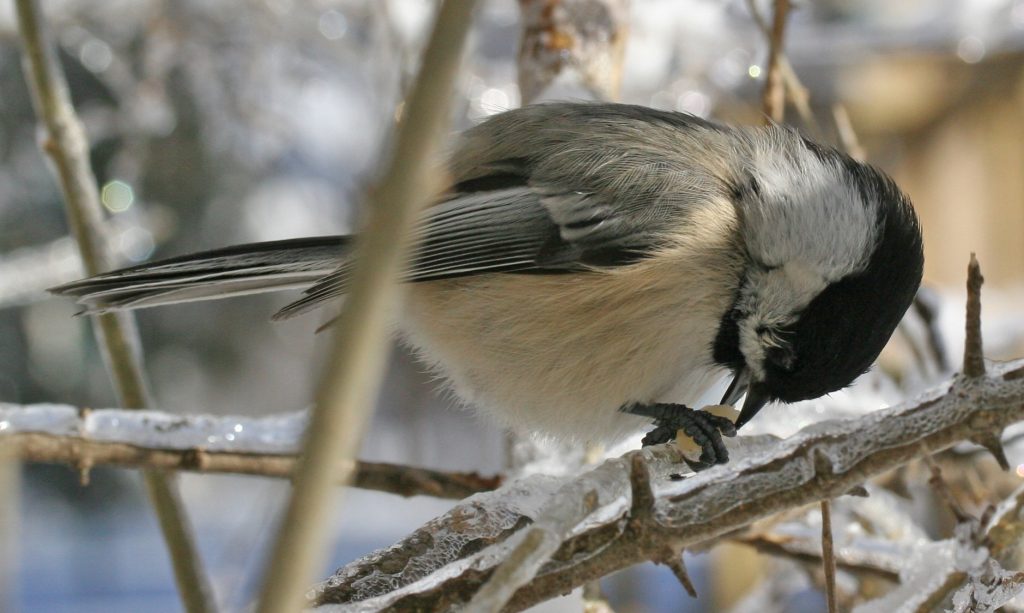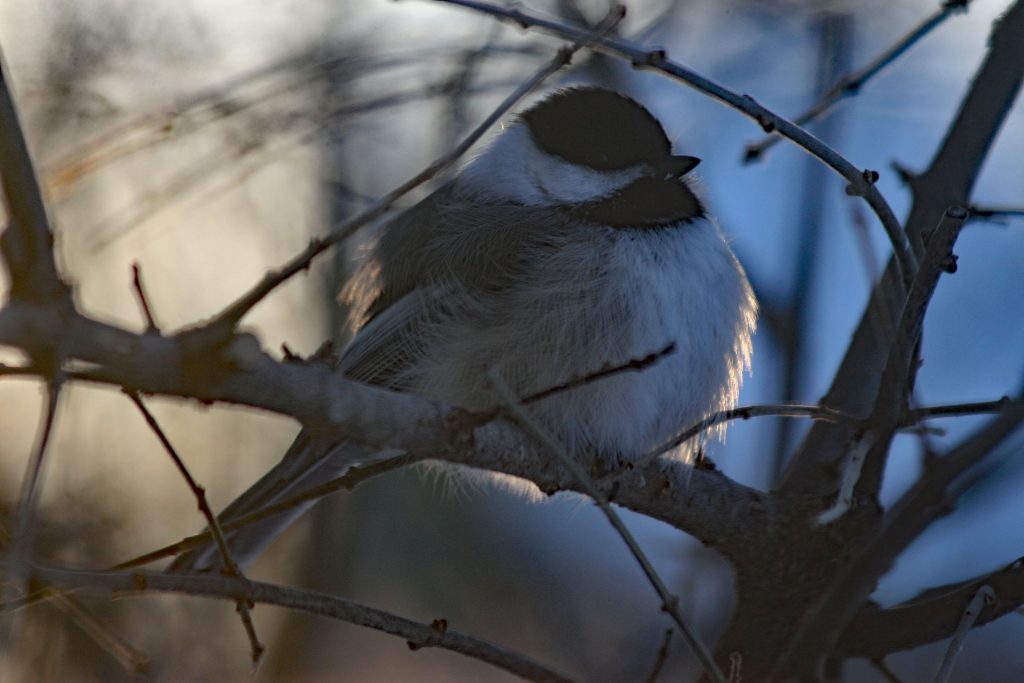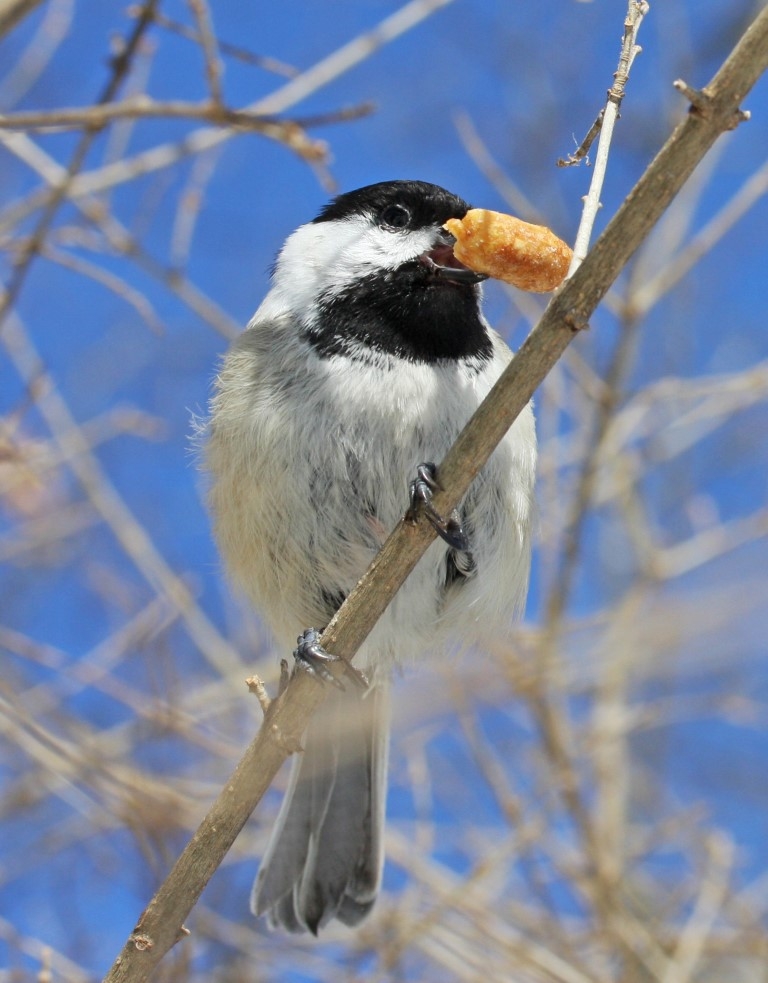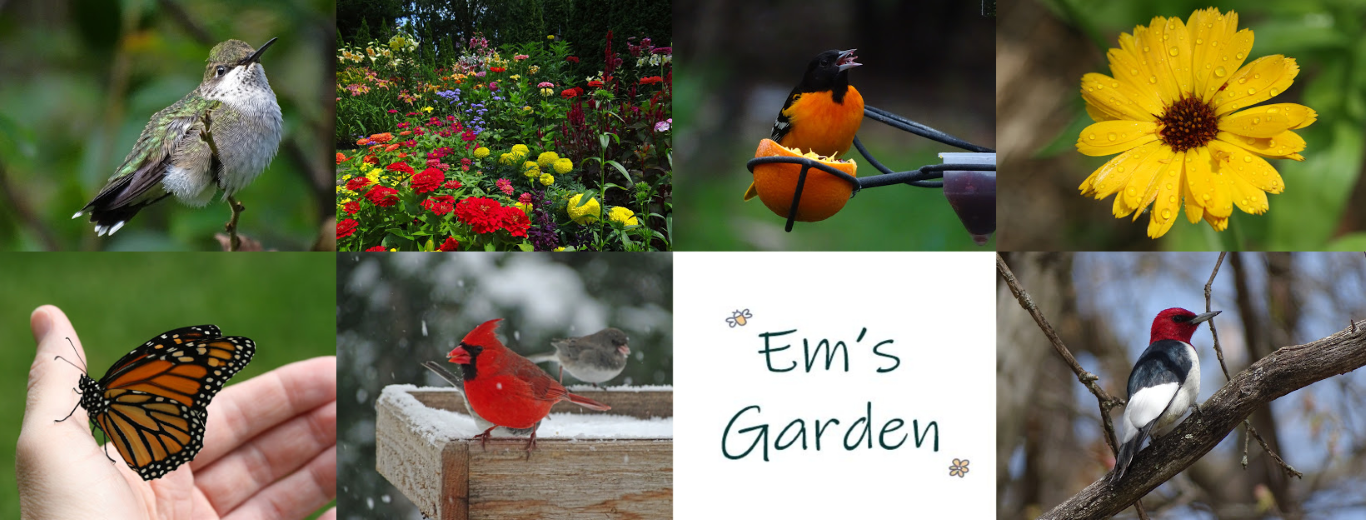I just finished an excellent new book called The Courage of Birds: And the Often Surprising Ways They Survive Winter * by Pete Dunne.
I have enjoyed feeding backyard birds every winter for several decades now, and I’ve even counted them for Project Feederwatch. This book helped me understand what’s going on behind the scenes with some of my hardy backyard visitors.

Take for example the Black-capped Chickadee. These little birds make it look easy out there even when the temperatures are well below zero. But it turns out they are in a constant battle to keep their body fat balanced enough to stay warm just from day to day.
To prepare, chickadees start caching food months earlier to help them survive when the weather gets nasty.
I’ve complained before that chickadees have damaged my lilies by trying to cache seeds in the large flower buds. They drill cavities so deep that when the flowers eventually unfurl there are holes in just about every petal!
Sometimes I’ve even discovered the sunflower or safflower seed they’ve so carefully stuffed in there for a colder day in the future.

But here is what is truly amazing about these tiny creatures that I learned from Dunne’s book. Chickadees “can store and remember the hiding places of up to a half a million seeds and insect larvae” by using a seasonally-enlarged hypothalamus.
When you see them coming to your feeder for one seed and disappearing, they are more than likely storing that seed someplace for later and keeping a record of where they put it!

It’s also heartening to know that winter bird feeding isn’t just a feel-good hobby. It can actually help some birds survive.
Dunne writes, “While chickadees are not dependent upon offerings of seed, in colder regions feeding stations do almost double their winter survival rate by providing reliable, high-energy food on demand when energy-taxed birds need it most, dawn and dusk.”
I used to refill my feeders in the morning, but after reading this book I now understand how crucial it is that birds eat food in the late afternoon to help them survive a frigid night. I now refill my feeders in the mid-afternoon instead.
If you enjoy observing or feeding birds in the winter, consider adding this informative book to your reading list!
* This is not an affiliate link
